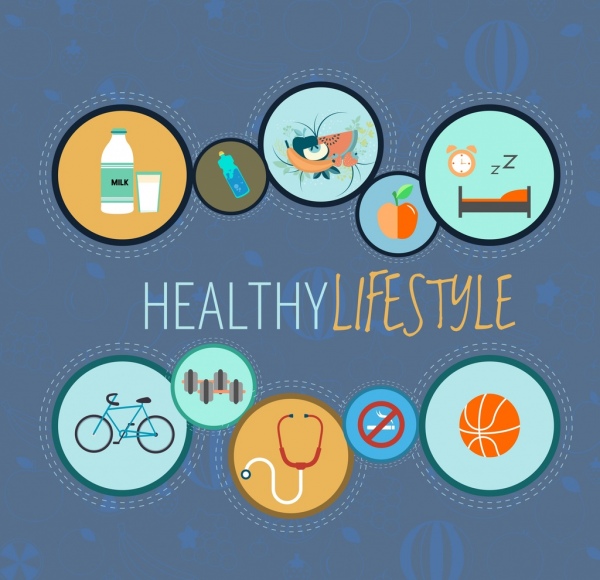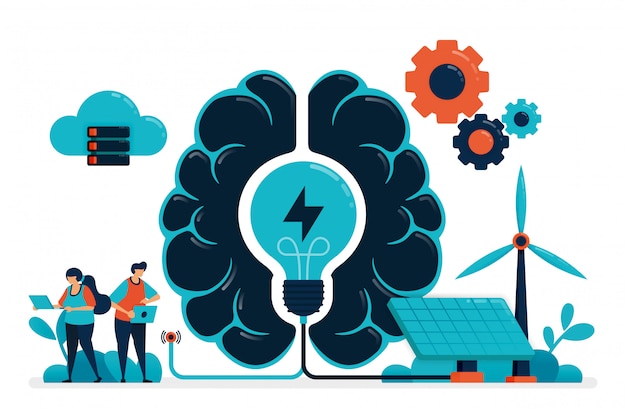The 5-Minute Guide To Staying Healthy Running A Business From Home
By 20f9Fun - avril 18, 2020
Running a business from
home can go one of two ways. Either it can be your one-way ticket to the best
health of your life, or it can be an invitation for various new stresses,
problems, and things that can go wrong. Which it turns out to be for you is all
down to the way you manage both that business and your health.
And it all begins by
understanding just how connected these two seemingly disparate matters are: there
is a lot of synergy between your
career, your lifestyle, and your health and you need to approach these things as
one challenge rather than separate
ones.
This five-minute guide will
provide the perfect overview and introduction that can help you to do just
that… And you'll learn all that in just five minutes!
Part 1:
Lifestyle Design
The first concept we should
touch on is lifestyle design. What is lifestyle design? Essentially, it means
coming up with a career and designing the other aspects of your routine in such
a way that it supports the lifestyle you want to live.
This is the exact opposite
of the approach most of us are used to taking. Most of us will instead take up
a job and then our lifestyle will just kind of 'happen' around that. Often we
'fall into' the job rather than choosing it specifically and then we are forced
to choose where we are going to live, how we are going to spend most of our
time and when we will exercise all based around the parameters set by that job.
Lifestyle turns this on its
head by asking: what's important to you? What would it take to make you happy?
Then, you look at creating a career that supports those objectives.
In this case, if we are
looking at health, we will ask about how the job we're doing can better support
our health. If your career is leaving you tired and stressed and you're
struggling to find the time or energy to exercise…
then you need to change
something about your job! Come up with your goals and from here design your
training program. Now think about how you can fit those four hours a week of
training into your working day routines. Can you go before you sit down at the
computer? Would it make more sense to go in the afternoon when the gym is nice
and quiet? Which days will you have the most energy?
And we are also including
'happiness' here under the umbrella of health. So as you're designing your own
career and your own lifestyle, you should also be asking yourself what you can
do to make yourself happier. For many people, that will mean spending more time
with the people they love, traveling more and having more time relaxing.
Some people take the idea
of traveling through lifestyle design to its ultimate conclusion – and as a result, they end up as 'digital nomads' – people who spend their entire lives
traveling while they make enough money to live off of from the web with just a
laptop.
Note that not everyone will want to go as far as to become a digital
nomad
– you can end up really
missing all your creature comforts and friends if you live perpetually on the
move. In that case, a good 'compromise' is to simply go on more holidays and
trips in your spare time and to do more unusual and fun activities to make the
most of the flexibility that comes from running your own business.
Passive Income
For many people, the best
type of business model to support lifestyle design will be one that provides
passive income. Simply put, passive income is money that you aren't working
for.
This means that you are earning cash even as you sleep because you have the product that is selling or because you are able to outsource the work for
commission.
This then means you're no
longer trading time for money
– and if you can get to that position you will
find it's much easier to put your health first!
Part 2:
Energy Management
But the reality for most of
us is that we have more than enough
time. If you've ever watched an entire boxset of some TV drama or other, then
that's a clue that you probably have enough time! The problem is, that you're
coming home from work feeling stressed, tired and worn out and that's why you can't find the will power
to get off the sofa and do a full workout.
So if you're
going to work from home and you want to ensure you really benefit from that,
you need to think about what you can do to maximize your energy levels.
This is also
how you make sure you have the time and energy to spend time with your family
and friends and to really enjoy your free time.
And the most important
thing here? Somewhat ironically, that is to give yourself structure and discipline
and not to allow yourself to get into bad habits. You need to set the hours you
are going to work and you need to set the hours you are not going to work and you have to ensure that these are clearly
defined and separated.
Part 3:
Separating Your Home Life and Work-Life
One good example of how you
can separate your home life and work-life is to make sure that you are not
working from home. Working from home does not have to be a phrase that you take
literally – it can instead mean 'working not from an office'.
Being a digital nomad means
working out of an office but so do does working from a coffee shop. Or how
about working outside somewhere on a laptop in the sun?
Doing this helps you to
create a clear psychological distinction between when you're working and when
you aren't working. Likewise, actually leaving the house means you get to take
more steps in a day, you get to meet other people (even if that only means
talking to the baristas in the coffee shops!) and you get to get some fresh air.
Also important is to resist
the temptation to work into the evening to try and earn more money, or to meet
a deadline that you promised a client. To ensure you don't do this, the first
tip is to aim to 'under-promise and over-deliver'. In other words, don't
promise you'll get them their work tomorrow but the day after. If you finish
faster, you'll really impress the client. And if you don't? Then you won't feel
tempted to work until 3am to hand it in (which only makes you even less
productive the next day).
Likewise, think carefully
about which clients you accept and which projects you take on. Don't accept
work if you can't afford it and don't work with clients who send too many
e-mails or want to have 'Skype meetings' just for a $10 order. Stick with the
clients that are fast to pay and who are more interested in working efficiently
together rather than 'playing business'.
All this can be scary. The
thought of turning down work is something many of us find difficult but there
are a few tips you can use to make it easier. The first is to make sure that
you have more than one revenue stream. In other words, set up a scenario where
you are also earning money from an
app or from a website and
that way you can focus on this on the quiet days and the income will help make
up for quiet patches.
Another tip is to try
outsourcing work to virtual assistants and others which means you can focus
instead on the parts of the job that require your presence and that you really
enjoy. You can also use software to automate a lot of your job.
Finally, make a pact with
yourself not to answer e-mails after 5pm. Set up an autoresponder telling
people that you won't be answer messages during those hours and have a separate
phone for home and for work.
By the same token though,
it is equally just as important that you tell your family and friends that they
can't interrupt you during working hours. Treat your working day as you would
any office job – you are not free to meet up on a whim unless you've finished
your work. You can be more flexible but make sure you stick to a routine and
you don't make exceptions when you feel like it.
Having a strict set of
goals for how much you need to earn in a day (as a minimum) can also be a good idea and help you to be strict in these ways.
Part 4: Sleep
Sticking to a
routine, working towards goals and having systems to keep work and your private
life separate will all help you to stay less stressed and to be more
productive.
What's also very crucial
for both these things is getting the right sleep. Getting sleep is absolutely
critical because it will help you to be more focused, energized and productive
when you wake up. Think of sleep as being sacred and make sure you don't let
anything interfere with it.
A few things can help you
to get better sleep. One tip is to make sure that you stop looking at phones
and computers an hour before bed. This will help you to avoid the unnatural
blue light that makes our brains think it's
morning. At the same time,
you'll avoid stresses that can be caused by seeing a work-related e-mail last the thing at night.
A hot shower helps a lot
before bed too, as does making sure that you get all the right vitamins and
minerals. Vitamin D, magnesium, zinc and melatonin all help us to sleep and can
be found in our food. Finally, make sure that your bedroom is dark and that you
have removed noise as much as possible.
Part 5: Your
Work Environment
Your working environment also impacts your health and productivity. If you're running a
home business, then chances are that you're going to be spending most of your
working day on the computer. This has the potential to be bad for your back and for your arms and wrists.
Try to make sure your
computer is at head height, that your arms are bent at right angles and that
you hover your wrists above the keys. Try to change position regularly and get
up often to go for walks. Finally, make sure that you think about the light in
your area. Having a view out a window can do wonders for your mental health but
do ensure it's not creating glare on the computer screen which can lead to
eyestrain, headaches and other issues.
Part 6: Diet
and Exercise
The last piece of the
puzzle is your diet. Getting this right will bring everything else together and
help you to be more productive at work, to have more energy and to recover
better from workouts.
If you're looking to lose
weight, then eat a little less. If you're looking to build muscle, then eat
more protein. More importantly, though, your goal should be to support your body's
energy processes to help yourself become more productive and more focused.
The best way to do this is
by eating a nutrient-dense diet, which coincidentally will also keep you fuller
for longer. Eat meats, organ meats, fruits, vegetables, fish, fats and eggs and
as a result you'll be getting more magnesium, zinc, iron, calcium, amino acids,
omega 3 fatty acid, CoQ10, creatine, tryptophan, lutein… you name it. And all
these things will help you to perform optimally.
We've already talked about
how you should design your lifestyle to support a training program, so the last
task here is to come up with that
training program. Pick something that will be actually fun and rewarding to do
and you will find it's that much easier to stick to.
SHARE THIS







Comment